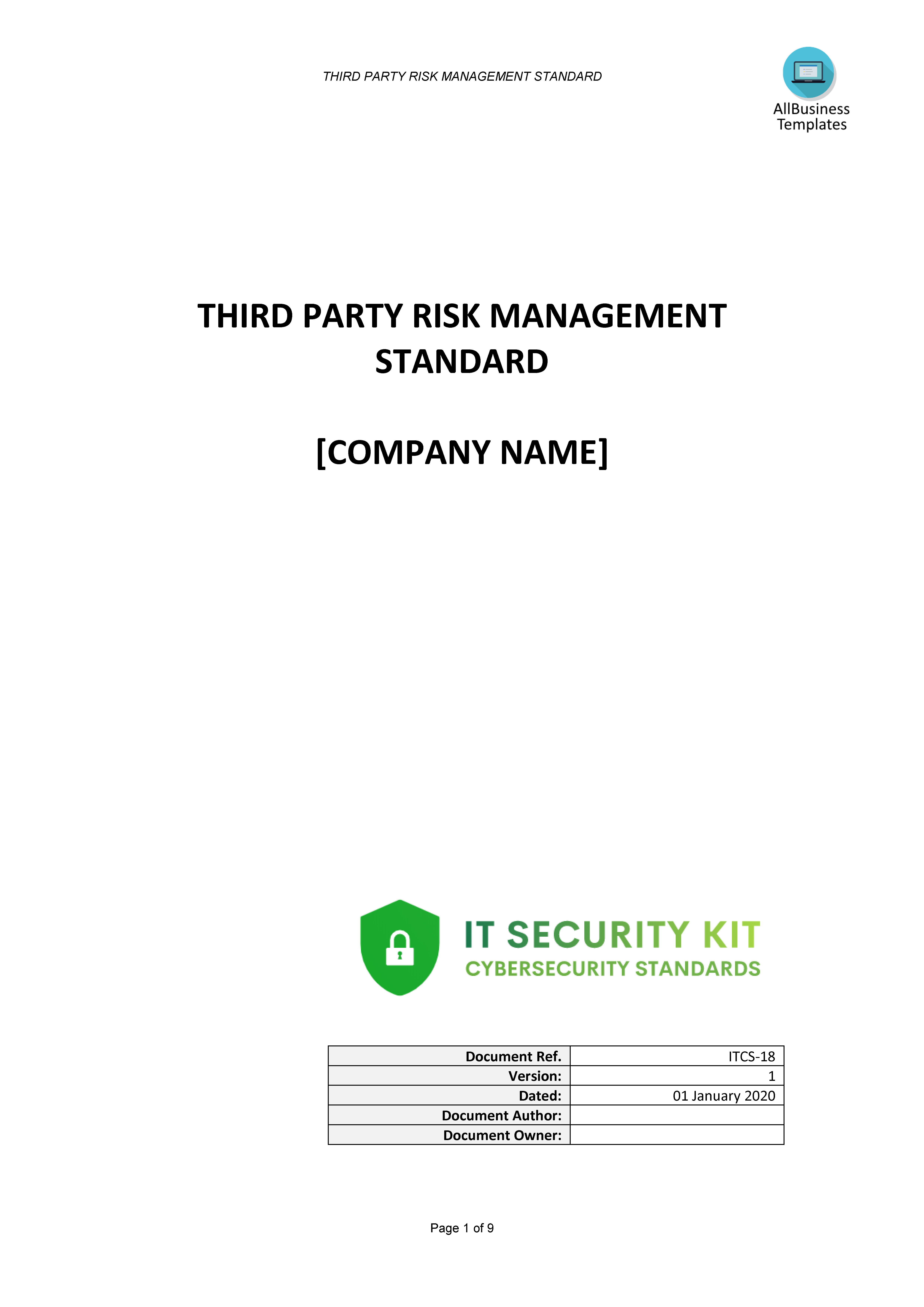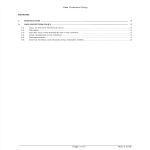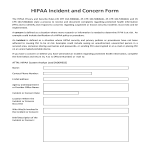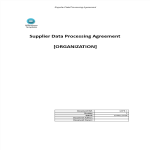Third Party Risk Management Standard

Guardar, completar los espacios en blanco, imprimir, listo!
How to create a Third-Party Risk Management Standard for your IT organization? Download this Third-Party Risk Management if you are working on IEC, NIST, ISO270
Vandaag: USD 7.99
Descárgalo ahora

Formatos de archivo premium disponibles:
.docx- Este documento ha sido certificado por un profesionall
- 100% personalizable
Compliance Conformidad IT TI information technology tecnologías de la información IT SOP TI SOP GDPR RGPD Iso Yo asi GDPR template plantilla GDPR ccpa iso27001 isms ccpa template nist standard iso it standard iso27001:2013 information security standards pdf security standards definition network security standards cyber security standards uk cybersecurity cyber security compliance standards nist security standards information security standards it security management information security best practices information security policy standards it security security techniques information security management systems cybersecurity standards IT compliance TI Cumplimiento normativo it standard operating procedure it security compliance how long does it take to implement iso27001 iso27001 questions iso 27001 controls list iso 27002 checklist
How to create a Third-Party Risk Management Standard for your IT organization? Download this Third-Party Risk Management if you are working on IEC, NIST, ISO27001:2013 or other IT and Cyber Security Standards and control objectives.
This standard will set out the basic rules for managing the security over third parties (i.e., suppliers, vendors, etc) who maintain direct or indirect access to your organizations' IT systems and data. This standard applies to all third parties including corporations, individuals, sub-contractors, or parties engaged by any external service provider with whom the organization has a commercial relationship with for the provision of IT services and who may be handling or have access to the information.
Appropriate data security controls reduce the likelihood (and impact) of data breach incidents during various phases of the data lifecycle. The purpose of this standard is to set out the rules for securing the companies' data during transmission and storage. This document provides best practice recommendations on information security management for use by those responsible for initiating, implementing or maintaining information security management systems (ISMS).
Nowadays, with the digitalization of our society, the need for data protection became more important. The latest IT Security Standards involve the application of technology to broader social and institutional contexts, and thereby contributes to the servitization of companies, and affects how they compete and interact. This document contains security technology solutions to protect data classified as “Highly Sensitive”, “Sensitive”, “Private” or “Public” as per the Data Classification Standard and Data Handling Guidelines. Specifically:
- Cryptography – Encryption and hashing solutions for protecting sensitive data when in transit or storage, and
- Data Masking – Data masking is a technology for obscuring sensitive information in non-production environments. Through data masking [Company Name] protects the content of sensitive data in non-production environments to ensure that:
- Application developers, testers, privileged users and outsourcing vendors do not have unauthorized access to such information.
- The data maintains the referential integrity of the original production data.
Download this Third Party Risk Management now. Besides this document, make sure to have a look at the IT Security Roadmap for proper implementation and this fit-for-purpose IT Security Kit here with over 40 useful templates. The document(s) are easy to modify and can be downloaded directly after purchase.
DESCARGO DE RESPONSABILIDAD
Nada en este sitio se considerará asesoramiento legal y no se establece una relación abogado-cliente.
Deja una respuesta. Si tiene preguntas o comentarios, puede colocarlos a continuación.


